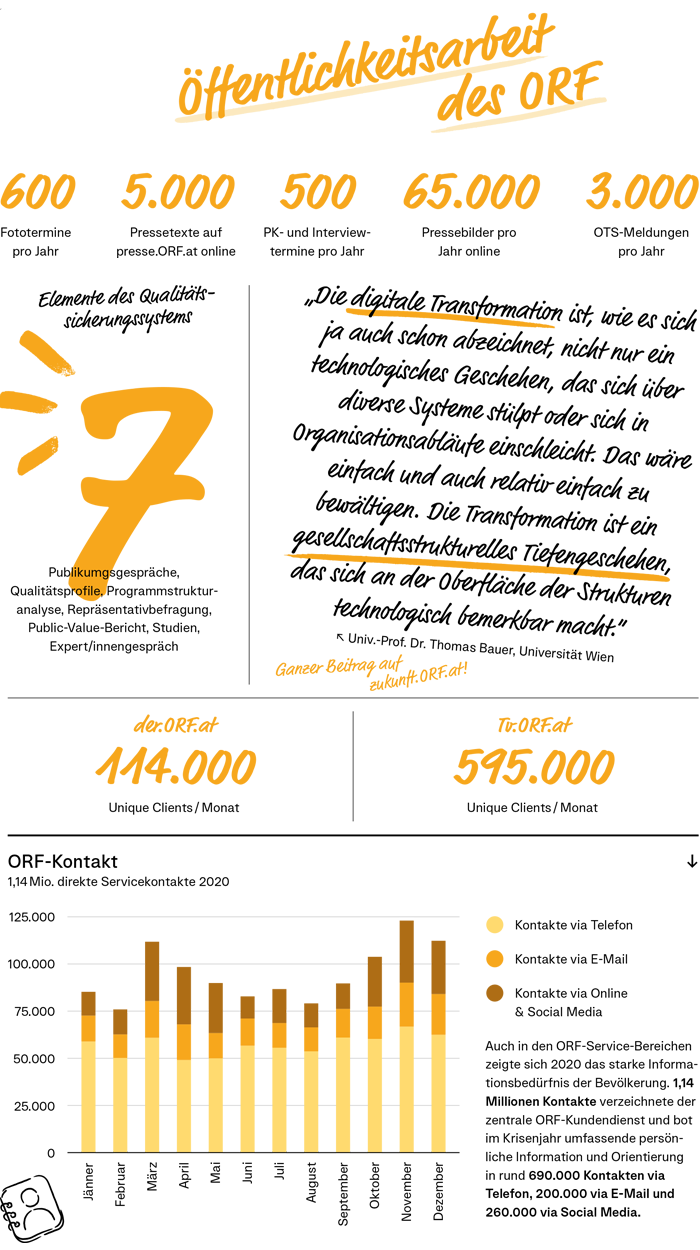Back to overview
Prof. Dr. Hardy Gundlach, University of Applied Sciences Hamburg
#99 Transparency: What should public broadcasters emphasize?
In the course of the digital transformation of the media, public service media (PSM) such as ORF are called upon to inform the public, citizens and politicians about their
contribution to the common good and the tasks associated with it. Public value or accountability are terms of a discussion about forms of accountability that are not mere legal applications. Rather, they define the communicative task of maintaining and improving the public reputation of public service media.
Public reputation is existential for PSMs because, in addition to market failure reasons and societal functions, their legitimacy depends equally on a majority of society or politicians seeing PSMs as legitimate or desirable, just and right.
With economics, it can be argued that PSM should explain the
benefits and
socially desirable effects that justify public funding of PSM, after which public value communication focuses, for example, on diversity of information and opinion and media trust. Moreover, PSMs are organized as public enterprises. Therefore, they should also inform citizens about the special
decision-making procedures,
structures and
standards to which the public mission obliges them, and how they live these special values in their everyday operations.
Topics of the digital transformation of PSM and their media services are in particular the social media engagements, independent online offers, rules of VoD dwell time and to what extent PSM reach the younger users*. In addition, they should highlight what makes them special and clearly distinguishes them from commercial media: the inner values, the concretization of which is specified by the public mandate and which can be explained with the fields of action
independence,
ethics,
journalistic diversity, and
productive film and cultural partnerships.





